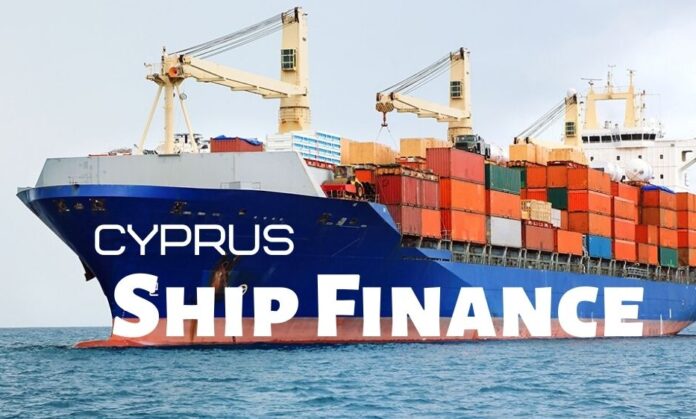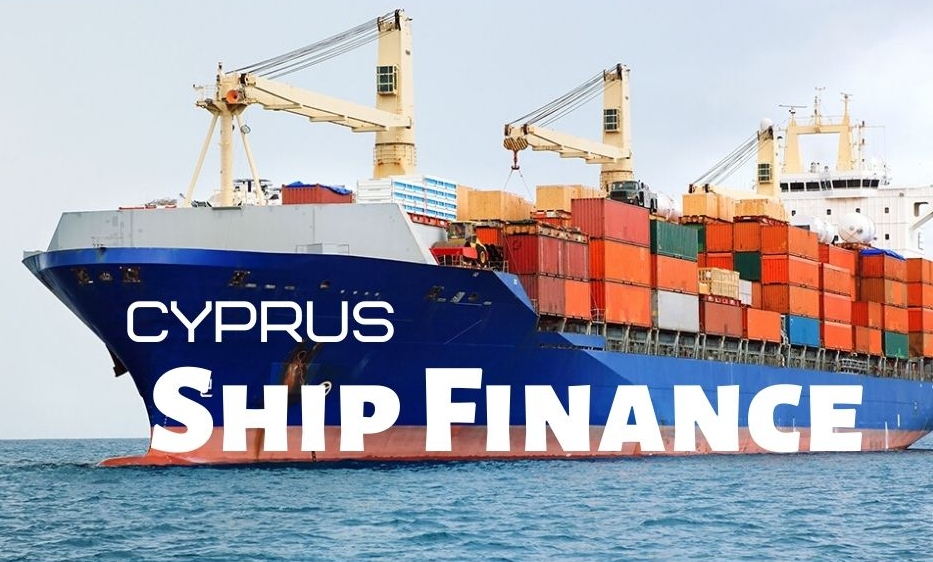
(www.MaritimeCyprus.com) The Shipping Industry is currently undergoing one of its largest economic and financial crises of recent memory due to the turmoil brought on by the credit crunch. It is under these circumstances that prudent and careful financial and investment decisions need to be made in order to not only survive the turbulence, but to thrive and expand in this era of opportunities.
Finance is at the heart of global industries and shipping is no exception. Without access to appropriate finance, the maritime industry as we know it would cease to exist. Whether it is the purchase of a ship, investment in a shipping start-up or the outlay into research and development, finance is the engine of progress in the shipping world.
Due diligence for ship finance transactions in Cyprus:
Demonstrating title or legal ownership
How does one demonstrate title to or legal ownership of a vessel registered under the laws of your jurisdiction?
Upon the provisional or permanent registration of a vessel under the Cyprus flag pursuant to the Cyprus Merchant Shipping (Registration of Ships, Sales and Mortgages) Law 1963, as amended (the Merchant Shipping Law), the Registrar of Cyprus Ships issues a certificate of ownership evidencing, inter alia, the particulars of the vessel and the name and address of the legal owner of the vessel. Following the registration of a mortgage on a vessel, the Registrar also issues a certificate of ownership and encumbrances of the vessel (in the case of provisional registration of the vessel) or a transcript of register of the vessel (in the case of permanent registration of the vessel) evidencing, inter alia, the legal ownership of the vessel and the details of the mortgage. Any of these certificates or transcripts constitute, by an express provision in the Merchant Shipping Law, admissible evidence relating to the matters stated therein, including the legal ownership of the vessel.
An entry in the Cyprus Ships Register (the Register) relating to the legal ownership of a vessel constitutes prima facie evidence of such ownership and any person claiming title to the vessel bears the burden of proving the defective title of the registered owner.
Liens
How can one determine whether there are any liens recorded over a vessel?
The Cyprus Ships Register does not maintain a register of liens over a vessel that arise by operation of law, and such liens are not registrable under Cyprus law; only mortgages are registrable at the Ships Register, and the particulars of the same are revealed by a certificate or transcript as explained in question 1, whereas the mortgage Register is open to inspection by the public upon payment of a search fee.
How does one determine whether there are any security agreements, liens, charges or other encumbrances granted by a vessel owner or affiliated party who might be a borrower, guarantor or other credit party in connection with a vessel finance transaction?
Pursuant to the Cyprus Companies Law, Cap 113, as amended (the Companies Law), ship mortgages and other charges granted in connection with a vessel finance transaction (eg, assignments, pledges, fixed or floating charges) over the property or assets of a Cyprus company (or a foreign company having its principal place of business in Cyprus and having records with the Companies Registry) must be registered at the Companies Registry as charges against the assets of such a company. Upon payment of the relevant search fee, any person may conduct a search at the Companies Registry in order to trace the existence of any such registered charge.
Public registry searches
Can one determine whether an obligor registered in your jurisdiction is duly organised and in good standing from a search of a public registry?
A search at the Companies Registry or a certificate of good standing issued by the Registrar of Companies upon payment of a relevant official fee may reveal that a company is still on the records kept by the said Registry, and thus it may be presumed that such a company has been duly established pursuant to Cyprus law. Non-winding-up certificates may also be issued by the Registrar of Companies.
Can the shareholders or other equity interest holders, directors and officers or other authorised signatories of an obligor organised in your jurisdiction be determined from a search of a public registry? If not, how are these parties customarily identified?
A search at the Companies Registry reveals, inter alia, the registered directors, registered shareholders and the secretary of a company, but not whether the directors or shareholders are nominees, nor any beneficial ownership of the shares in a company.
The records kept by the Registrar of Companies depend on the timely filings of any changes by the company’s secretary and may not always be up to date. Therefore, it is prudent for a lender to obtain an incumbency certificate issued by the company’s secretary as to the current position of its officers and shareholders.
A director of a Cyprus company may not be authorised to represent the company on his or her own. The authorisation of a signatory should be ascertained by examining the company’s articles of association and its relevant corporate authorities resolving and authorising the execution of the documents required in a ship finance transaction.
Debt obligation
What corporate or other entity action is necessary for an obligor to enter into or guarantee a debt obligation? When is action by the board of directors or other governing body required? Must shareholders approve a guarantee?
The entry into a debt obligation by a Cyprus company either as a primary obligor, guarantor or surety has to be properly resolved and authorised by its board of directors by means of relevant corporate authorities (either by resolutions in writing or the minutes of a meeting of the board of directors and, if relevant, a power of attorney in favour of any nominated attorneys-in-fact). Such corporate authorities must be in line with the company’s memorandum and articles of association and, in general, must state that the directors have considered the debt obligation to be for the company’s commercial benefit.
Shareholders’ resolutions are not necessarily required, unless otherwise provided in the articles of association of the company. However, as the directors have a fiduciary duty to act in the interests of the company, where the existence of a corporate benefit is not clear (eg, in the case of a guarantee for the obligations of a third party not directly connected with the company) the shareholders’ approval should also be obtained.
Although of limited applicability, the prohibition of financial assistance should also be excluded.
Obligations of foreign lenders
Must foreign lenders qualify to do business in your jurisdiction to extend credit to a borrower organised in your jurisdiction? Will foreign creditors be deemed resident as a consequence of making a loan or other extension of credit to an obligor within your jurisdiction?
Under Cyprus law, no consents, approvals or authorisations or notification to any public authority are required for foreign lenders to extend credit to a borrower organised in Cyprus.
Foreign lenders or creditors will not be deemed to be resident, domiciled, carrying on a business or subject to taxation in Cyprus by reason only of the negotiation, preparation, execution, performance or enforcement of any of the loan and security documents involved in a finance transaction providing a loan or credit or other facility to a Cyprus obligor (or secured by a Cyprus obligor).
Source: Chrysses Demetriades & Co LLC - Marion Coukidou-Madella













